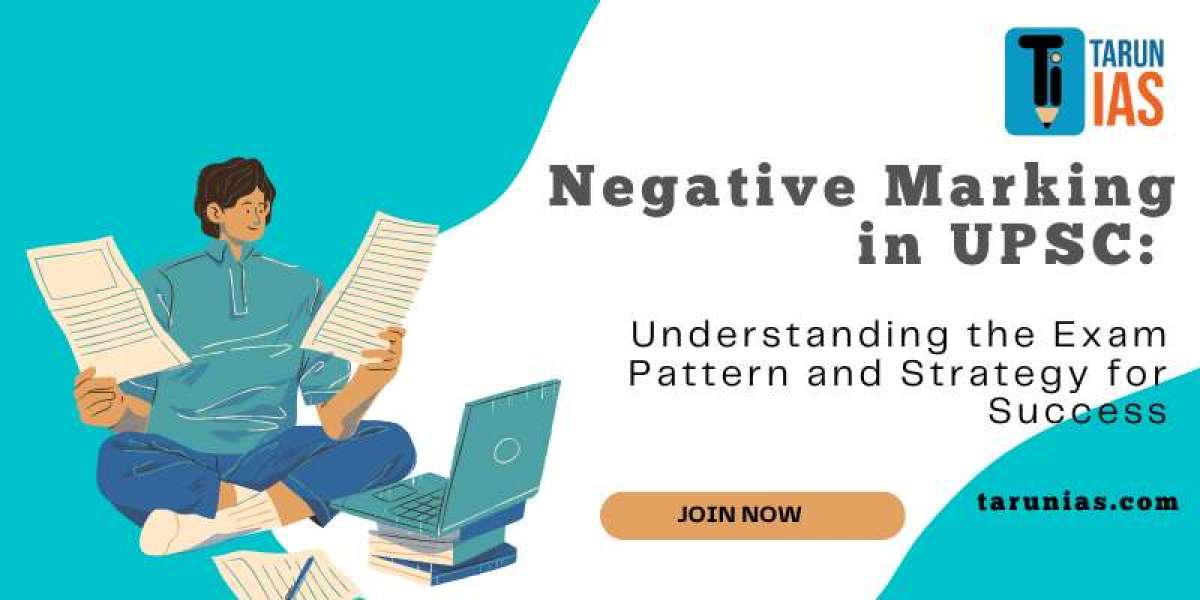Negative Marking in UPSC: Understanding the Exam Pattern and Strategy for Success
The Union Public Service Commission (UPSC) exam is one of the most competitive exams in India, attracting thousands of aspirants every year. A significant factor that adds to the pressure and complexity of the exam is the concept of negative marking. This article aims to shed light on negative marking in UPSC, explaining its implications, the exam pattern, and effective strategies to mitigate its impact and achieve success.
Understanding Negative Marking
Negative marking is a scoring system where incorrect answers are penalized by deducting a specific number of marks. This is done to discourage guesswork and ensure that candidates are rewarded for their knowledge and understanding rather than mere luck. The penalty for incorrect answers can vary depending on the specific exam and section.
Exam Pattern and Negative Marking
The UPSC Civil Services Examination (CSE) consists of three stages: Preliminary Exam, Main Exam, and Interview. Negative marking is primarily implemented in the Preliminary Exam.
Preliminary Exam:
Civil Services Aptitude Test (CSAT): This section is designed to test a candidate's general intelligence and analytical ability. It typically has negative markings, with a specific number of marks deducted for incorrect answers.
General Studies Paper I and II: These papers cover a wide range of topics, including history, geography, politics, economics, and current affairs. While negative marking might not be explicitly mentioned in these papers, it is often implied or inferred.
Main Exam:
Negative marking in UPSC is not typically implemented in the Main Exam. However, it's essential to note that the scoring system is relative, and candidates are ranked based on their overall performance. Therefore, minimizing errors in the Main Exam is crucial to securing a high rank.
Interview:
The interview stage does not involve negative marking. However, candidates are evaluated on their communication skills, personality, and subject knowledge. A poor performance in the interview can significantly impact the final ranking.
Strategies to Mitigate Negative Marking
Understand the Syllabus Thoroughly: A strong grasp of the syllabus is fundamental to avoid careless mistakes. Ensure you are familiar with the specific topics and their weightage in the exam.
Practice Regularly: Consistent practice is key to improving accuracy and reducing errors. Solve previous year's question papers and mock tests to familiarize yourself with the exam pattern and identify your strengths and weaknesses.
Time Management: Effective time management is crucial to avoid rushing through questions and making careless mistakes. Allocate time to each question based on its difficulty level and ensure you have sufficient time to review your answers.
Elimination Technique: If you are unsure about an answer, try to eliminate options that are clearly incorrect. This can increase your chances of guessing correctly.
Avoid Guesswork: While the elimination technique can be helpful, avoid wild guessing. If you have no clue about an answer, it's often better to leave it blank rather than risk negative marks.
Review and Revise: After completing a section or the entire exam, take a few minutes to review your answers. This can help you identify any errors or inconsistencies.
Maintain Calmness: The pressure of negative marking can lead to anxiety and stress. It's important to stay calm and focused throughout the exam. Practice relaxation techniques to manage stress effectively.
Conclusion
Negative marking in UPSC is a significant factor to consider when preparing for the UPSC exam. By understanding its implications, and the exam pattern, and implementing effective strategies, candidates can mitigate its impact and increase their chances of success. Remember, accuracy is more important than speed, so prioritize quality over quantity in your answers. With careful planning, consistent practice, and a positive mindset, you can overcome the challenges posed by negative markings and achieve your goal of securing a top rank in the UPSC exam.







